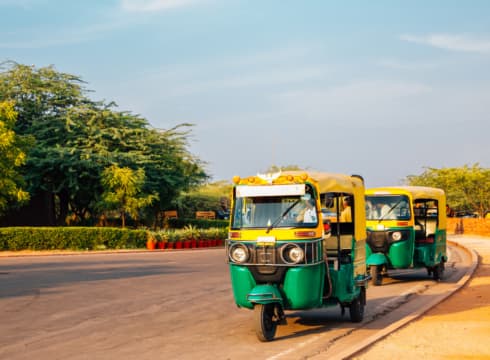The convenience fee is exclusive of GST, implying users will have to pay an additional 5% GST on a total of fare and service charge
This decision comes close on the heels of state transport secretary NV Prasad and transport commissioner SN Siddaramappa briefing CM Basavaraj Bommai
On an interim basis, the Karnataka HC had fixed the convenience fee charged by ride hailing apps at 10% of fares, exclusive of GST
Inc42 Daily Brief
Stay Ahead With Daily News & Analysis on India’s Tech & Startup Economy
Amidst an ongoing tussle between the Karnataka government and cab aggregators, the state government has reportedly sought to cap the convenience fee at 5% for auto rickshaw rides.
However, senior officials told the Economic Times that the convenience fee was exclusive of GST, meaning users will have to pay an additional 5% GST on an aggregate total of base fare and service charge.
This is nearly half of the prevailing interim 10% service charges that cab operators are currently allowed to charge customers.
This decision comes close on the heels of a meeting that saw Chief Minister Basavaraj Bommai, chief secretary, Vandita Sharma, transport secretary, NV Prasad and transport commissioner SN Siddaramappa in attendance.
The outcome also came ahead of the deadline for the government to file an affidavit on the matter before the High Court on Friday. A bench headed by Justice CM Poonacha will take up the matter for hearing on Monday.
Issues Galore
At the centre of controversy is the order issued by Karnataka Transport Department to cab aggregators – Uber, Ola and Rapido – last month. The diktat had directed the ride-hailing apps to stop auto rickshaw services in the state for overcharging customers.
Subsequently, both Uber and Ola dragged the state government to Court over the matter. The aftermath saw the HC allowing the aggregators to resume services and directed the Karnataka government to hold talks with Uber and Ola over auto fares.
The court issued an interim direction which capped the convenience fee at 10% of the total fare, besides 5% GST.
Since then, the deliberations have seen both sides remain adamant on their demands. While previously the Karnataka government had sought the ratification of the interim 10% convenience fee arrangement, but has since scaled it further down to 5%.
On the other hand, cab aggregators, at a meeting with the government, had reportedly sought a convenience fee of 20% on auto fares, excluding GST.
On a previous occasion, Uber had claimed that the 10% cap could render its business financially unviable and could also force it to limit auto services to select parts of Bengaluru.
Another bone of contention appears to be the services that these players are allowed to offer. Citing November 2020 aggregator guidelines issued by the Road Transport Ministry, Ola and Uber said that the two players were allowed to offer auto rickshaw rides in the state.
State transport authorities, however, disagree noting that ride hailing apps were only allowed to operate four-wheeler taxis under the Karnataka On-Demand Transportation Technology Aggregators Rules.
This adds to the rising problems for both players. While users have publicly slammed the two platforms for exorbitant pricing, authorities have also taken note of the ‘unfair business practices’ employed by the two giants.
While reports have emerged of a merger to tide over the market uncertainty, the two sides have vehemently denied any such move.
Despite all this, the competition in the highly lucrative space refuses to abate. As per a report, the Indian online taxi services market was pegged at INR 2,975 Cr in FY19, and is estimated to reach INR 6,159 Cr by 2024.
{{#name}}{{name}}{{/name}}{{^name}}-{{/name}}
{{#description}}{{description}}...{{/description}}{{^description}}-{{/description}}
Note: We at Inc42 take our ethics very seriously. More information about it can be found here.


